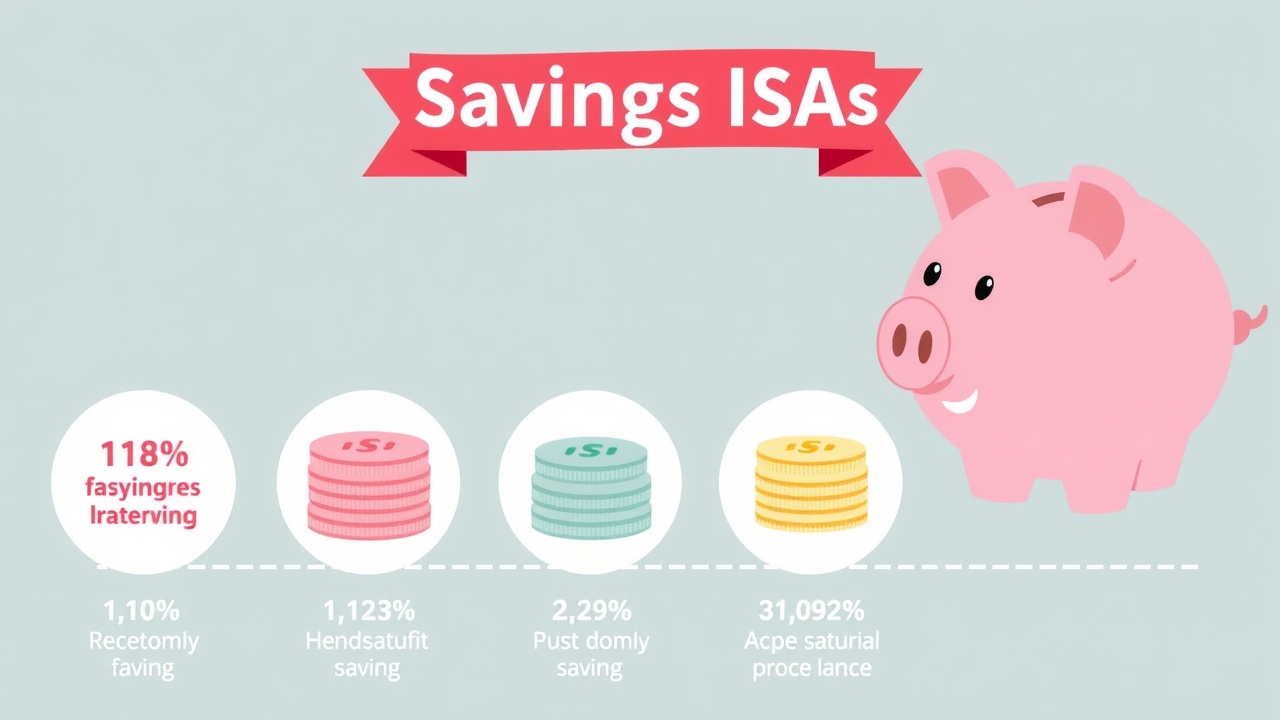
It's not necessarily the end of the world, but risk-averse savers might be disappointed if the cash ISA limit is reduced
Following the revelation that chancellor Rachel Reeves was being pressured to lower the annual cash ISA allowance to 4,000, cash ISAs have been in the news for all the wrong reasons in recent months.
Reeves stated that she is attempting to "get the balance right between cash and equities to earn better returns for savers, boost the culture of retail investment, and support the growth mission." The Treasury has since confirmed that they are investigating reforming the cash ISA.
This has, predictably, raised concerns among many cash ISA savers who are reluctant to invest in the stock market.
However, Rob Morgan, chief investment analyst at Charles Stanley, suggests that a smaller cash ISA allowance might not be the end of the world.
Do you believe that Rachel Reeves ought to lower the cash ISA limit?
Your money usually grows more in the stock market.
Some people who are unfamiliar with the stock market have an uneasy perception of it. One is immediately reminded of Wall Street's enormous peaks and abysmal troughs.
But while your investments may lose value, a properly managed, well-diversified portfolio typically increases in value over time.
Morgan points out that "a monthly sum of £100 saved in cash since the introduction of ISAs in April 1999 would be worth 38,493." The same sum would have increased to 160,849 if it had been invested in worldwide shares.
He continued, "Even a fund that sought to track the comparatively underperforming UK market during the same time period would have outperformed cash handsomely at 77,758."
The performance of stocks in the past does not always portend future performance.
"The cash ISA product is incredibly helpful. Because that part of your savings is not subject to tax reporting requirements, it lets you earn interest tax-free and can make your financial life easier, says Morgan. But you can have too much of a good thing.
Morgan suggests that people may be "missing out on better opportunities to build long term wealth" by putting their money into cash ISAs instead of investing it.
In contrast to a cash ISA, the stock market has the potential to yield significantly higher long-term growth for your money if you manage and diversify your investment portfolio appropriately.
Starting an investment with the goal of holding onto it for at least five to ten years is generally a good idea. In this manner, you won't have to freak out over transient market fluctuations.
Naturally, the decision to invest a larger portion of your money in the stock market is a personal one that depends on your risk tolerance.
For stocks and share ISAs, there are less hazardous options.
You shouldn't rule out a stocks and shares ISA just yet if the prospect of market crashes and economic downturns deters you from choosing one. You can invest in a variety of lower-risk stocks and shares through your ISA.
According to Morgan, "those seeking cash-like returns in exchange for a small amount of risk could invest in short-dated gilts or money market funds and both are available inside a stocks and shares ISA."
Morgan states that buying a UK gilt with a duration of, say, one or two years is similar to using a fixed term savings product, with the exception that the capital value may change and that the gilt may provide a combination of capital and income return.
Because gilts are issued directly by the government and will undoubtedly be repaid absent a complete collapse of society, they are considered low-risk investments. The government has never missed a payment on the funds it raised by issuing gilts, according to the UK's debt management office.
Money market funds represent yet another low-risk choice for your stocks and shares ISA.
A money market fund is an open-ended investment fund that makes investments in a variety of cash deposits and other securities, according to Morgan.
"To produce a competitive cash-like return from the interest received on the investments in the portfolio and to provide short term access for investors," he says, is the aim of a money market fund.
High-quality, short-term bonds that pay a fixed or variable rate of interest may also be included, depending on the fund's mission statements.
For your savings, there are alternative tax wrappers.
Another reason that a reduction in the cash ISA allowance might not be catastrophic is that there might be another tax wrapper that can lessen the impact.
Numerous taxpayers already benefit from a certain amount of tax-free interest on their savings held outside of ISAs through the personal savings allowance, according to Morgan at Charles Stanley.
Up to £1,000 in savings interest can be earned annually by basic-rate taxpayers without incurring taxes thanks to this allowance. Additional rate payers do not receive any personal savings allowance, but higher rate taxpayers are eligible for 500 in interest tax-free.
The starting rate for savings, which is a special 0% income tax rate on savings income up to £5,000, is applicable to those with low incomes (possibly due to retirement).
As prizes are tax-free, Morgan adds that Premium Bonds may help shield your funds from taxes.
Premium Bonds are available for purchase up to £50,000, but they do not guarantee interest payments. Rather, every month you are entered into a prize draw with the chance to win something. The prizes range from £25 to £1 million.
Because each bond has a 22,000 to 1 chance of winning any prize, the more bonds you own, the more likely you are to win. Nevertheless, according to recent data AJ Bell obtained from NSandI, approximately two-thirds of Premium Bonds savers have never received a single prize.
To what extent are cash ISAs funded?
Cash ISAs are a desirable option for savers due to their tax-free nature, but according to data from HMRC, few people are able to save even close to 20,000 annually.
The latest data from HMRC shows that approximately 30.5 million people saved less than 2,500 in cash ISAs during the 2021 - 2022 tax year.
In these accounts, 870,000 people deposited between 2,500 and 5,000 during that time, and 1.3 million people deposited between 5,000 and 20,000.
According to data from HMRC that AJ Bell analyzed, a total of approximately 726 billion is held in cash and stocks and shares ISA accounts throughout the UK, with stocks and shares accounting for the majority of these accounts.
About 14 million people in the UK only own cash ISAs, eschewing the stocks and shares option, and only about 100 billion is held in cash ISAs.














Leave a comment on: Why a lower cash ISA allowance might not be a concern for you